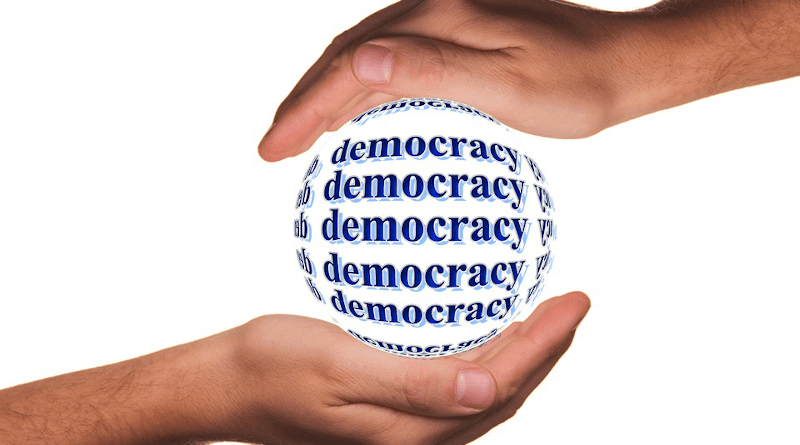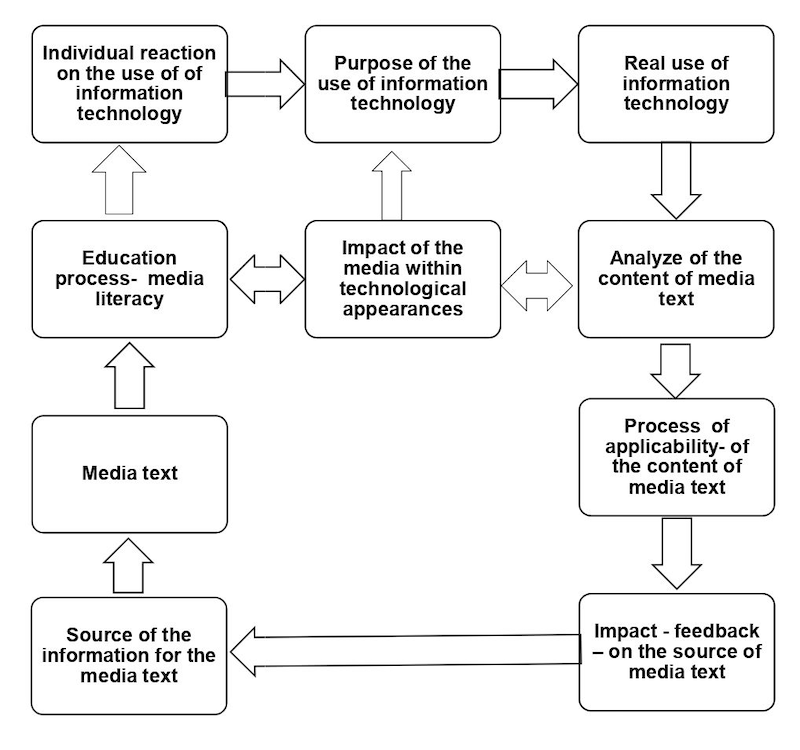Democracy Is Dead: Long Live Democratorship (Part II) – Essay
By Prof. Dr. Sabahudin Hadzialic
Faking Democracy
As said at the beginning of this “never-ending” story back on 10.11.2023, democracy is dead but we just do not know that yet, anywhere in the world. Pretending that ruling bodies (read: governments) are there for the people, of the people and are emphatic and focused for the benefit of all and not just a few (narrowest part of the interest parties of their own – political parties) will end as the ice cream on the sand beach within the Seychelles during summer. Melted into the nothingness of its own, yelling that nobody is better than we are, empowering people for the benefit of few, just few.
Nevertheless, to avoid being pessimist and becoming a careful optimist, there is a solution – A solution focused on the development, through the must education (primary school, secondary school and college) of the module “Media literacy”. Developing critical thinking where we become controlled media instead of being controlled and manipulated by the media. Critical thinking where populists (left and/or right), fascistic chauvinists (ultra right) will not be running and ruling developed countries anywhere in the world. And why they are doing that? Because, people who vote for them are not educated, even if they have college education, with the simple thing: critical thinking.
Manipulation within simulacrum of democracy in today’s civilization is based on the peoples ignorance of basic things: 1. Empathy and 2. Creation of the wealthy society instead the creation of the wealthy individuals, as we have today.
A wealthy society means wealthy individuals, but wealthy individuals do not create a wealthy society. Just ask the 20 million homeless people in the USA or 300 million poor and non-educated at all people in India. There are at least a couple of thousands (maybe even ten thousands) wealthy people in the above mentioned countries, but does it mean that there exists a wealthy society? Not at all.
The basic fake link within today’s XXI Century democracy is based on so call-caked “total democracy” where you can say and do whatever you want without being afraid that you will be hardly punished for doing so. Just see the marching of neo-Nazis in Germany or the newly elected fascistic racist Geert Wilders in Netherland as the flag carrier of the far right of the EU (even worse than Le Pen in France).
Democracy is a procedure, a bloody procedure, where rights should be equal to the responsibility and vice versa, it’s as simple as that. And it stops when it jeopardizes somebody else’s freedom of any kind. Equality of the rights and responsibility can be reached through the creation of critical thinking. For that we need at least 15-20 years if we start now. To avoid infotainment and to be faced with the media literacy which enables primarily children, future citizens for the political choices, to understand political discourse and participation within it. In this way, as mature, media literate, well-informed citizens they will be able to make their own decisions about the democratic electoral process. However, adolescents, young people and adults, and also the oldest citizens often need to be media literate, especially due to the fact that in the age of new media and new technologies, the knowledge that we possess becomes obsolete very quickly and it is certainly necessary to participate in lifelong learning and within the media literacy of all generations of citizens.
Media literacy has dual meaning – as an concept is defined as ability of the approach, analyses, evaluation and transmission of the messages through the media while the essential focus of media literacy is to overmaster with critic and creative skills, knowledge that are of help to connect complex ideas, constantly questioning manifestations, attempt to recognize answers that will satisfy congenital curiosity of any of us, but also to identify individual, and even wider, social deceits. We have to make distinction in regards “critical vs. creative thinking about the media and vice versa” and methodology focused on media education and/or education of the media and how to upgrade digital literacy with media literacy by the author in 2018, based on the model of Venkatesh & Devis, from 2000.
A media literate society is healthy society of new technological awareness that will unify the understanding of tradition and new technologies, that will, within the interaction, help the society to create newly established relations within education on verifiable facts which are so very much visible in the post-modern society of XXI Century. Media literacy enables nation(s) to recognize hidden agendas within the transmission of information not just within the media, but also within the society as the whole, especially within the education. For the purpose of the life-long learning, regardless if we have media literacy as obligatory module in the primary and/or secondary school of we have it within the general educationally planned process of the society as a grown-ups.
I am presenting scientific relationship diagram in regards “critical vs. creative thinking about the media and vice versa” and methodology focused on media education and/or education of the media and how to upgrade digital literacy with media literacy by the author in 2018, based on the model of Venkatesh&Devis (2000) and presented within the Scientific conference “Virtuality and education – future perspectives” in Nicolas Copernicus University, Torun, Poland, back in 2018:
The annular course of the supposed intention is conditioned by possible alternative forms of mutual influence, both in media literacy and in the source of media text. The pertinentness of the aforementioned goes to the benefit of media literacy, since media literate person (including other forms of literacy as well) can – not only better understand the presented media text, but also apply – apply mentioned with a direction to the influence on the source of the media text itself.
A media literate is not just a person who reads the “media,” but a person who can directly influence the future creation of media texts with the aim of positively manipulating not only their own understanding, but also the future intentions of the creators of the media text. In that case, the negative manipulation by the source of the media texts disappears by itself, because it is no longer possible, until now to present – but not anymore – the media illiterate person, shaped and finished perceptual content. Now in front of us is a media literate – educated personality that will critically question the above and seek not only for the confirmation of his/hers own views, but also directly make an influence and impact on the positive creation of future intent not only of the recipient but also of the creator – provider of the information.
At the same time, media text, or information as a form of speculative interpretation of the event or facts from the context of a particular event, possesses the appropriate structure and content. The structure of information itself ensures that its content – the newly discovered information about the object of information within its own appearance – is preserved as a kind of organization of elements of knowledge about the world in which we live and surrounds us. On the basis of the above, between the logical interpretation of the events in the sociological sense and the very occurrence of objects in the information – the media text, there is a dialectical relation and the relation between the thoughtful interpretation of the event (in the advantage are the media literate personality) and the event taken in his factual expression is defined the measure of the objectivity of an information. If relationships between the interpretation of the content and the object of information are disturbed within this relationship, one can speak of non-objective, that is, deformed information directed towards manipulative tendencies, but this is not yet false information. The sources of non-objectivity (deformity) information lie in:
• Intellectual insufficiency (insufficient media literacy) of the one who shapes up the information in a way to speculatively includes all components of an event or events within the context of objective reality.
• By intention making the violation of the relation between speculative-logical explication of the event and/or information and real structure of the ongoing that are the subjects of the event and/or information.
• Deformation of media text can happen on the level of its perception because of insufficiency of media literacy, under the influence of selection processes (read: ethical, moral, ethnic, political, societal and economical) the recipient of the information very often are deforming media text to resist to the tendency which is imminent to media text, which might be simply factual explanation of the event and/or information.
So, dear readers, shall we do it? Or fade out within the Faking democracy of our own, anywhere in the world, today.


